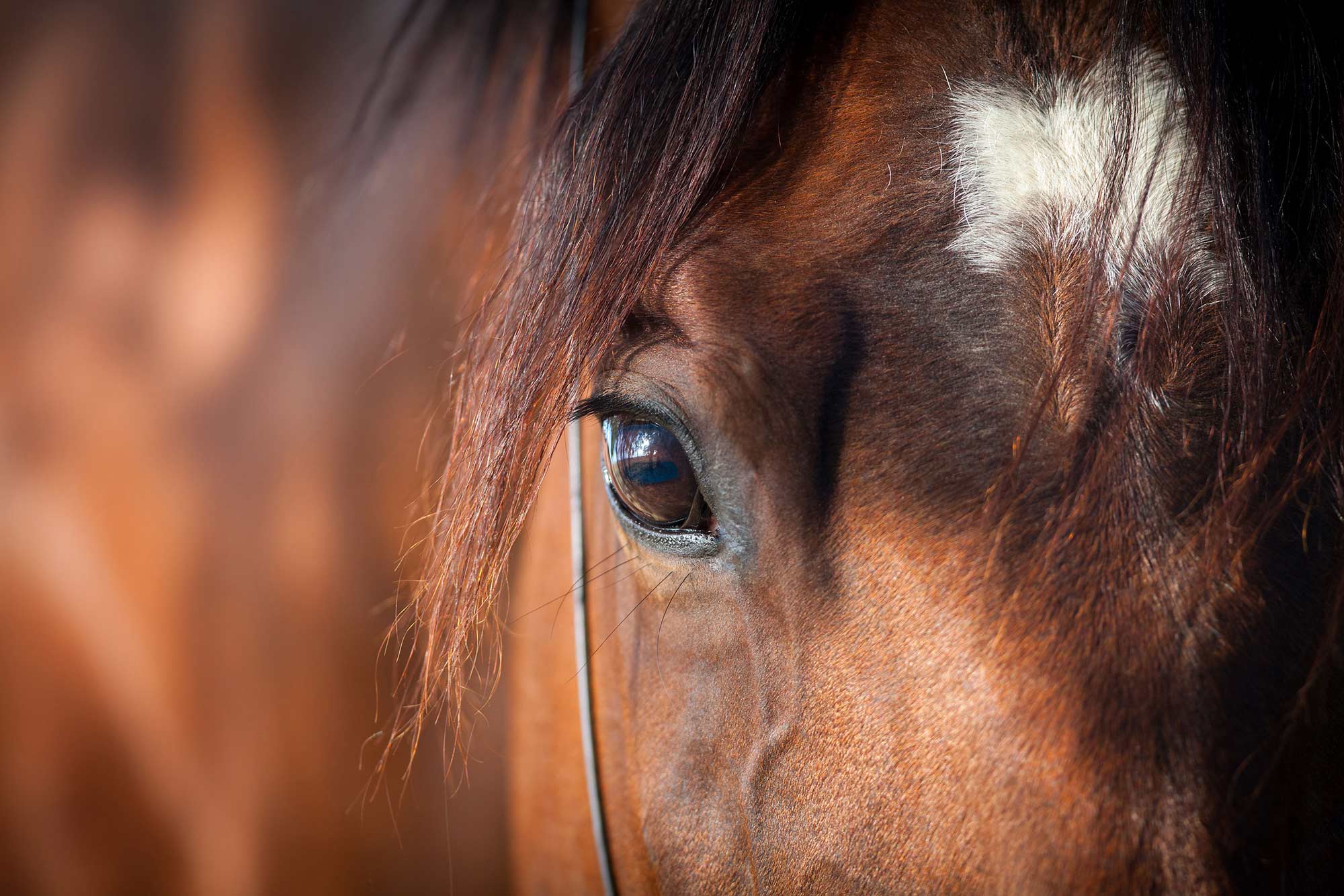Equine asthma is an umbrella term used to describe a variety of respiratory diseases affecting up to 14% of horses in the UK. It can significantly impact your horse’s overall well-being and performance, while the symptoms can range from very mild to extremely distressing. Recognising the symptoms of equine asthma is vital for providing effective care and managing the condition, and we recommend contacting your equine vet practice if you suspect that your horse may be suffering from this condition.
For an overview of equine asthma, take a look at our guide.
Equine Asthma Symptoms
Equine asthma is an inflammation or obstruction of a horse’s lower airway, which limits their ability to breathe as well as healthy horses. It can be broken down into two categories; mild to moderate, and severe.
The signs of equine asthma can vary in severity from very mild to extremely distressing, and can be seen as acute episodes or chronic ongoing issues. While some signs are noticeable only upon physical examination by an equine vet, other signs can be recognised by the owner.
The more subtle form of equine asthma is associated with the milder symptoms. This affects horses at any age but is more common in younger horses (2-4 years old) and is often detected in young thoroughbreds as they embark on their racing career. The more severe cases are most common in horses older than about seven years old.
Symptoms of asthma in horses include:
Coughing
One of the most common signs of equine asthma is a persistent cough. It may start as a dry cough, progressing to a chronic wet cough. This cough can occur during either rest or exercise. More than four coughs a day would be considered abnormal for most healthy horses.
Increased Respiratory Rate
Horses with equine asthma will have trouble breathing and, as a result, have a higher respiratory rate. You may appreciate your horse breathing more rapidly than usual even at rest, or you may notice that your horse sounds laboured when breathing.
If your horse has a respiratory rate of higher than around 16 breaths per minute, or you notice a prolonged exhale or a more noticeable rising and falling of their ribcage, your horse may be experiencing respiratory distress and require veterinary attention.
Other abnormal respiratory signs include difficulty breathing after exercise or the production of a high-pitched sound whilst exhaling. A double ‘out’ breath is another sign.
Remember that a higher respiratory rate can also be a sign of colic, so it is vital that you know what is normal for your horse and contact your equine vet practice if anything changes.
Poor Performance
One of the less obvious equine asthma symptoms is a decrease in performance and fitness. As the condition progresses, affected horses will struggle to exercise. They may seem lazy and unenthusiastic, or their stamina may decrease. If you notice your horse struggling to catch his breath after exercise, equine asthma may be the cause.
Nasal Discharge
Nasal discharge that is either clear or cloudy from both nostrils can be another symptom of equine asthma. This can indicate inflammation and respiratory irritation. You may notice your horse itching or rubbing against objects to alleviate discomfort.
Learn more about the diagnosis and management of equine asthma and discover how we diagnosed asthma in our client's welsh cob, and helped them manage his condition in our equine asthma case study.
Avonvale Equine Vet Practice
If you notice any of these equine asthma symptoms in your horse it is crucial that you contact your equine vet practice to ensure swift treatment and an accurate diagnosis. The condition can be complex, and both treatment and management are key to improving your horse’s quality of life. We are an independent equine-only vet practice based in Upton, near Banbury. Our vets cater for all equines, including retired or companion horses, competition horses, broodmares and youngstock.
If you have any questions regarding the equine asthma symptoms or any other respiratory issues, please call to speak to one of our vets on 01295 670501 or register your horse, pony, donkey or mule with us today.








